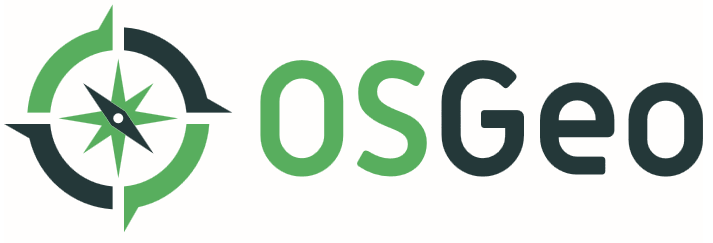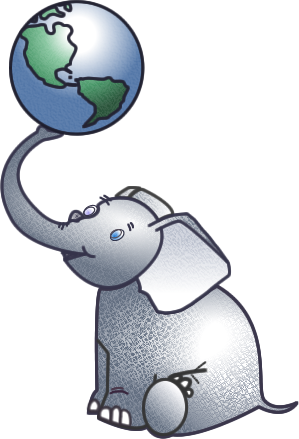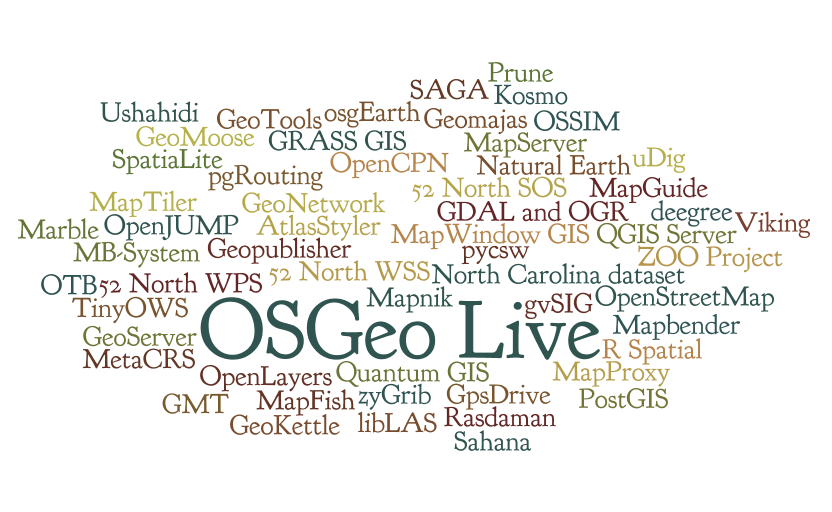Difference between revisions of "Google Summer of Code 2022 Ideas"
RajatShinde (talk | contribs) |
RajatShinde (talk | contribs) |
||
| (8 intermediate revisions by the same user not shown) | |||
| Line 32: | Line 32: | ||
* GSoC Contributors will also be able to choose from multiple size projects ~175 hour (medium) and 350 hour (large). We understand not everyone can spend 30 hours a week on a coding project for 12 weeks but they would like to be a part of these communities with the help of mentors. | * GSoC Contributors will also be able to choose from multiple size projects ~175 hour (medium) and 350 hour (large). We understand not everyone can spend 30 hours a week on a coding project for 12 weeks but they would like to be a part of these communities with the help of mentors. | ||
| − | * We are building increased flexibility around the timing of projects - there is an option to extend the standard 12 week coding time frame to a maximum of 22 weeks. This is to allow for folks who may realize that spreading the work over say, 16 weeks, is a more realistic goal with their current life situation. Or for contributors who have life happen in the middle of the program and they can’t work on their projects for a few weeks, but they can come back to it after a month to finish it. Hopefully this makes it easier for GSoC Contributors and mentors to be able to navigate together when obstacles occur and the GSoC Contributor can successfully complete their project. | + | * We are building increased flexibility around the timing of projects - there is an option to extend the standard 12-week coding time frame to a maximum of 22 weeks. This is to allow for folks who may realize that spreading the work over say, 16 weeks, is a more realistic goal with their current life situation. Or for contributors who have life happen in the middle of the program and they can’t work on their projects for a few weeks, but they can come back to it after a month to finish it. Hopefully this makes it easier for GSoC Contributors and mentors to be able to navigate together when obstacles occur and the GSoC Contributor can successfully complete their project. |
== The ideas pages == | == The ideas pages == | ||
| − | |||
To add your page, <strong>please contact the GSoC admin team</strong> to let them know of your ideas page, by sending an email to [mailto:gsoc-admin@osgeo.org gsoc-admin@osgeo.org] | To add your page, <strong>please contact the GSoC admin team</strong> to let them know of your ideas page, by sending an email to [mailto:gsoc-admin@osgeo.org gsoc-admin@osgeo.org] | ||
| + | |||
| + | === OSGeo Foundation graduated project === | ||
| + | |||
| + | [[Image:logo-grass.png|60px|right]] | ||
| + | * [https://trac.osgeo.org/grass/wiki/GSoC/2022 '''GRASS GIS''' SoC Ideas]: [http://grass.osgeo.org GRASS GIS] is an open source GIS focusing on analysis, modeling and visualization. It is a collection of modules written in C and Python and has a GUI written in wxPython. If you know Python, or want to implement algorithms in C, take a look! | ||
| + | |||
| + | [[Image:logo-postgis.png|60px|right]] | ||
| + | * [https://trac.osgeo.org/postgis/wiki/GoogleSummerCode2022 '''PostGIS''' Ideas]: [http://postgis.net PostGIS] spatially enables the popular PostgreSQL object-relational database, allowing it to be used as a back-end database for geographic information systems (GIS) and web-mapping applications. | ||
| + | |||
| + | === OSGeo Foundation community project === | ||
| + | |||
| + | [[Image:Pgrouting-logo.png|60px|right]] | ||
| + | * [https://github.com/pgRouting/pgrouting/wiki/GSoC-Ideas%3A-2022 '''pgRouting''' Ideas]: [http://pgrouting.org pgRouting] extends the PostGIS / PostgreSQL geospatial database to provide geospatial routing functionality and more. | ||
| + | |||
| + | === OSGeo Foundation Incubation project === | ||
| + | |||
| + | [[Image:ZOO-Project-mini.png|60px|right]] | ||
| + | * [https://github.com/ZOO-Project/ZOO-Project/wiki/Google-Summer-of-Code-2022-Project-Ideas '''ZOO-Project''' Ideas]: The [https://zoo-project.org/ ZOO-Project] is a WPS open source project released under a MIT/X-11 style license. It provides support for WPS 1.0.0 and 2.0.0 versions and is able to handle services implemented in various programming languages. | ||
| + | |||
| + | === OSGeo Foundation Guest Project === | ||
| + | |||
| + | * [https://github.com/ec-jrc/re3gistry/wiki/Google-Summer-of-Code-2022 '''Re3gistry 2''' Ideas]: | ||
| + | The Re3gistry software is a reusable open-source solution for managing and sharing 'reference codes' through the use of persistent URIs, ensuring concepts are correctly referenced in any domain. Licensed under the EUPL, it has been developed in a context neutral way as an open-source project to be deployed or further developed by anyone in any domain. | ||
== I want to apply as a student == | == I want to apply as a student == | ||
Latest revision as of 07:16, 15 March 2022
- Back to the main OSGeo Google Summer of Code 2022 wiki page.
- See also ideas from 2021,2020, 2019, 2018, 2017, 2016, 2015, 2014, 2013, 2012, 2011, 2010, 2009, 2008, 2007.
OSGeo Google Summer of Code 2022
The Open Source Geospatial Foundation would like to extend a welcome to all SoC students. On this page, you will find links to a host of ideas organized by project. You will find ideas ranging from the depths of computer science graph theory to the heights of visualization. One thing all these ideas have in common is lots and lots of spatial data.
These ideas are *only* to motivate you and serve as an example of the kind of hills we want to charge up. Your own ideas are more than welcome - they are encouraged. We view you as the next wave of open source leaders and the future of the geospatial industry; show us what you've got!
- Students: check out the Google Summer of Code Recommendations for Students page. If you need more information on how to apply you can contact all the mentors via the OSGeo-SoC mailing list (see below) And look at GSoC Roles and Responsibilities to understand a successful teamwork and interplay of project, mentors, and students.
- There is a Google SoC flyer to look at and post in appropriate places.
- Ok, OSGeo is involved in working with maps and things, but what kind of projects does it really do? Have a look at the live blog feed to see what people are working on right now.
- Mentors, there's an additional link providing some tips and specifying your responsibilities on the main OSGeo Google Summer of Code 2022 Administrative wiki page.
New Modifications with GSoC 2022 (Must Read)
(citing from official GSoC 2022 announcement)
- Starting in 2022, the program will be open to all newcomers of open source that are 18 years and older, no longer focusing solely on university students. With folks around the world changing careers, returning to the workforce, learning on their own (outside of academic programs) we see an opportunity to reach a plethora of excited individuals who want to learn more about open source and be a part of our amazing GSoC communities. Check Eligibility here.
- GSoC Contributors will also be able to choose from multiple size projects ~175 hour (medium) and 350 hour (large). We understand not everyone can spend 30 hours a week on a coding project for 12 weeks but they would like to be a part of these communities with the help of mentors.
- We are building increased flexibility around the timing of projects - there is an option to extend the standard 12-week coding time frame to a maximum of 22 weeks. This is to allow for folks who may realize that spreading the work over say, 16 weeks, is a more realistic goal with their current life situation. Or for contributors who have life happen in the middle of the program and they can’t work on their projects for a few weeks, but they can come back to it after a month to finish it. Hopefully this makes it easier for GSoC Contributors and mentors to be able to navigate together when obstacles occur and the GSoC Contributor can successfully complete their project.
The ideas pages
To add your page, please contact the GSoC admin team to let them know of your ideas page, by sending an email to gsoc-admin@osgeo.org
OSGeo Foundation graduated project
- GRASS GIS SoC Ideas: GRASS GIS is an open source GIS focusing on analysis, modeling and visualization. It is a collection of modules written in C and Python and has a GUI written in wxPython. If you know Python, or want to implement algorithms in C, take a look!
- PostGIS Ideas: PostGIS spatially enables the popular PostgreSQL object-relational database, allowing it to be used as a back-end database for geographic information systems (GIS) and web-mapping applications.
OSGeo Foundation community project
- pgRouting Ideas: pgRouting extends the PostGIS / PostgreSQL geospatial database to provide geospatial routing functionality and more.
OSGeo Foundation Incubation project
- ZOO-Project Ideas: The ZOO-Project is a WPS open source project released under a MIT/X-11 style license. It provides support for WPS 1.0.0 and 2.0.0 versions and is able to handle services implemented in various programming languages.
OSGeo Foundation Guest Project
The Re3gistry software is a reusable open-source solution for managing and sharing 'reference codes' through the use of persistent URIs, ensuring concepts are correctly referenced in any domain. Licensed under the EUPL, it has been developed in a context neutral way as an open-source project to be deployed or further developed by anyone in any domain.
I want to apply as a student
Before applying as a student, check out the Google Summer of Code Recommendations for Students page.
Which project do I choose?
Most of the software projects are available pre-built on our OSGeoLive { DVD | USB stick | VirtualMachine } with project overviews and short tutorials where you can try everything out.
- View the documents and download the ISO from https://live.osgeo.org
Important dates
[Back to Google Summer of Code 2022 @ OSGeo]






